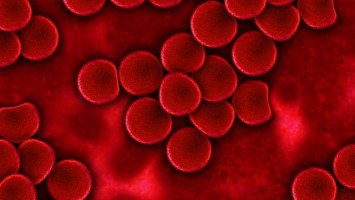
Mantle cell lymphoma (MCL) is an aggressive type of non-Hodgkin lymphoma that develops from B cells in the mantle zone of the lymph node and typically occurs in older patients.
Intensive chemotherapy or transplantation are often unsuitable in these elderly patients due to excessive toxicities.
Ibrutinib is a small molecule that inhibits Bruton’s tyrosine kinase (BTK), which is necessary for B cell proliferation and survival. The efficacy and durability of ibrutinib in patients with relapsed or refractory MCL have been demonstrated in previous studies.
The SHINE study (NCT01776840) aimed to evaluate the efficacy of combining ibrutinib with the standard chemoimmunotherapy bendamustine-rituximab and rituximab maintenance in older patients with untreated MCL.
A total of 523 patients with a median age of 71 years old from 183 sites across all geographical regions were randomized to receive ibrutinib or placebo in combination with 6 cycles of bendamustine-rituximab.
Those who achieved objective response received rituximab maintenance therapy every 8 weeks for up to 12 additional doses. Ibrutinib or placebo was administered until progressive disease or unacceptable toxicity.
The primary endpoint of the study was progression-free survival (PFS) as assessed by the investigators.
The addition of ibrutinib significantly improved median PFS by over 50% compared with the placebo arm (80.6 vs 52.9 months), while the overall survival and quality of life were similar between the two groups.
Complete response was achieved by 65.5% of patients treated in the ibrutinib arm and 57.6% of patients treated in the with placebo arm. The time to next treatment was also substantially longer in the ibrutinib arm, with only 19.9% of patients requiring a second-line anti-lymphoma therapy whereas it was needed in 40.5% of patients in the placebo arm.
Grade 3/4 treatment-emergent adverse events were reported in 81.5% and 77.3% of patients in the ibrutinib and placebo arms, respectively. Any-grade atrial fibrillation occurred in 13.9% of patients in the ibrutinib arm compared with 6.5% in the placebo.
In summary, the addition of ibrutinib to standard chemoimmunotherapy improved PFS by over 50%, with a safety profile consistent with the known profiles of the individual drugs.
Source: EHA